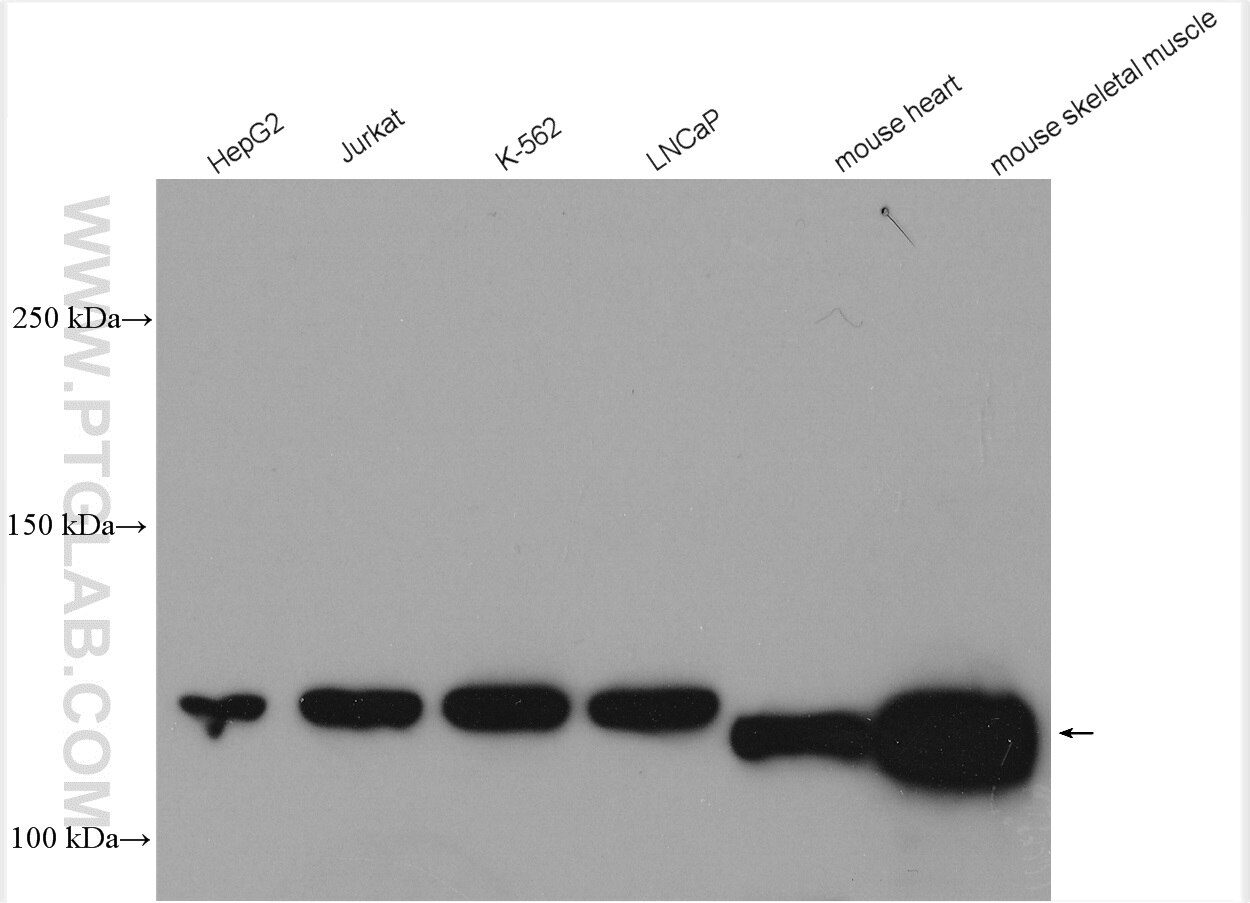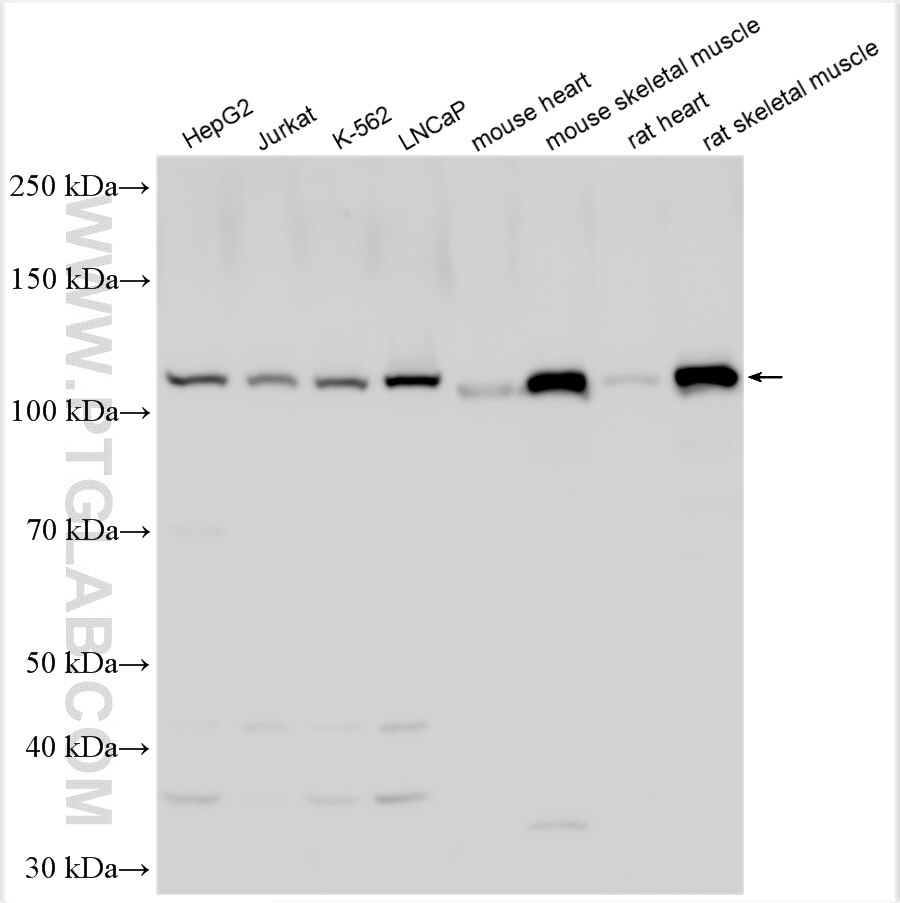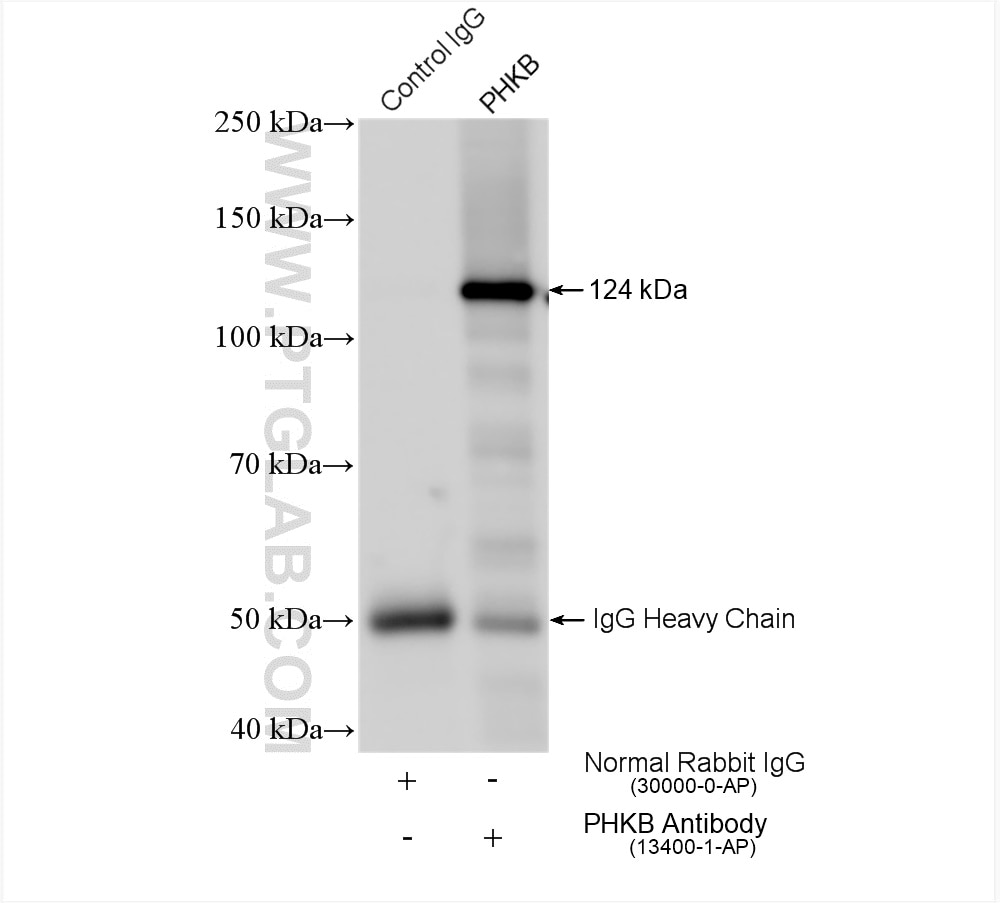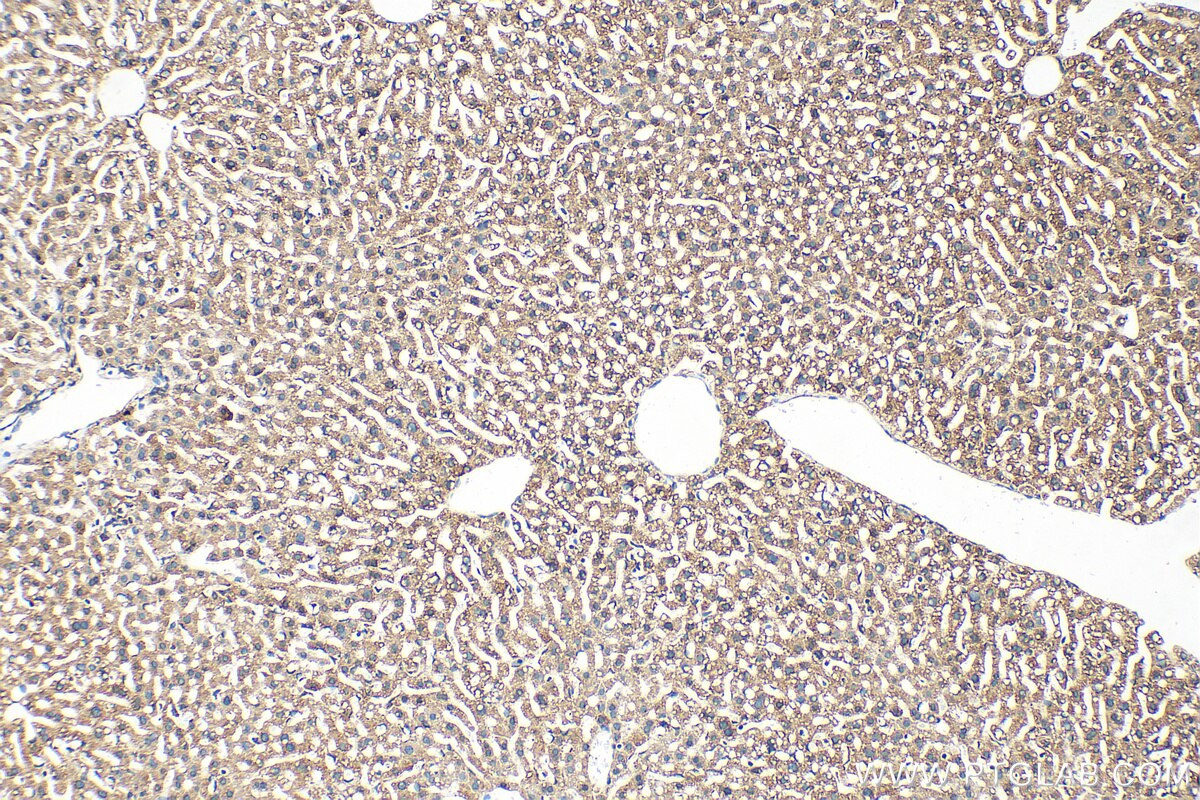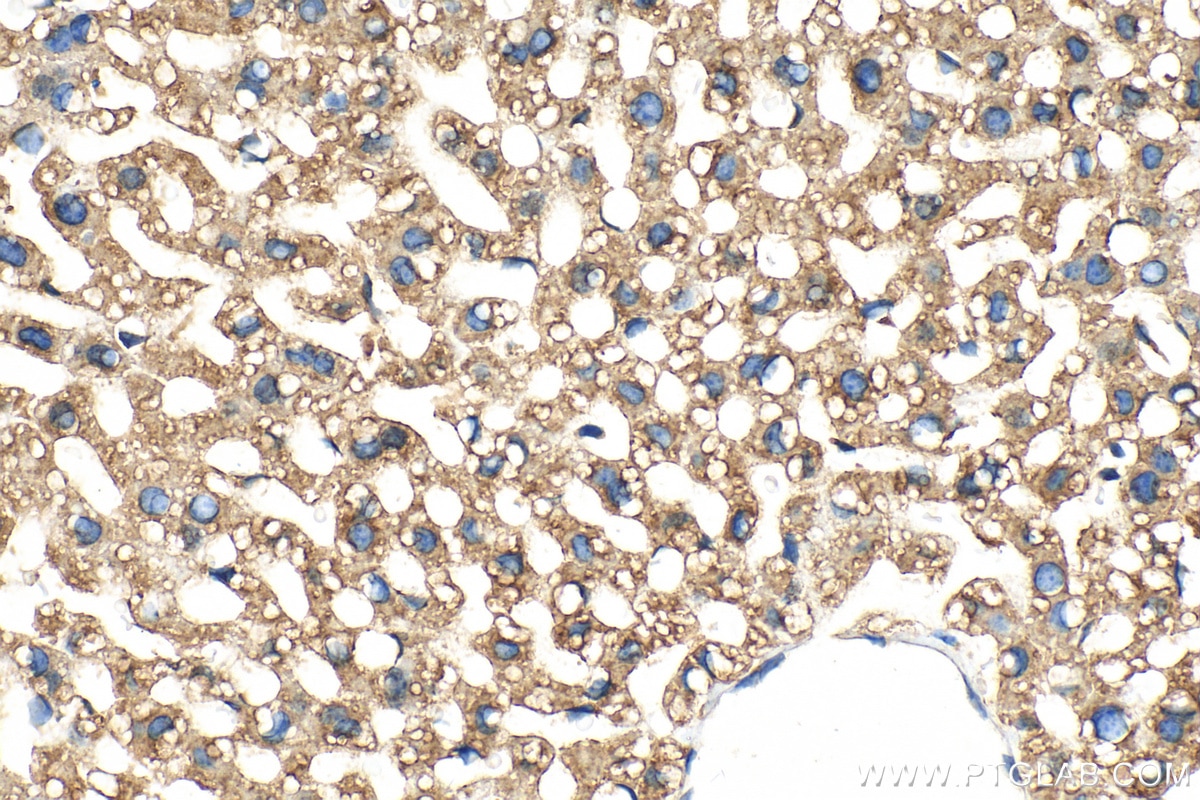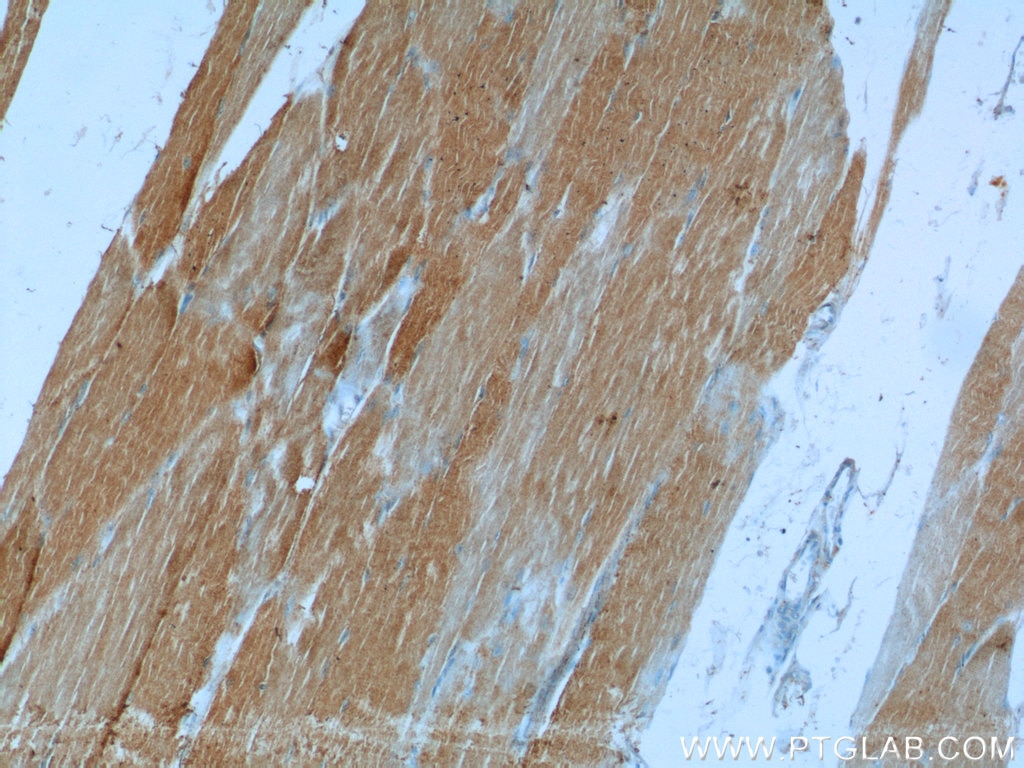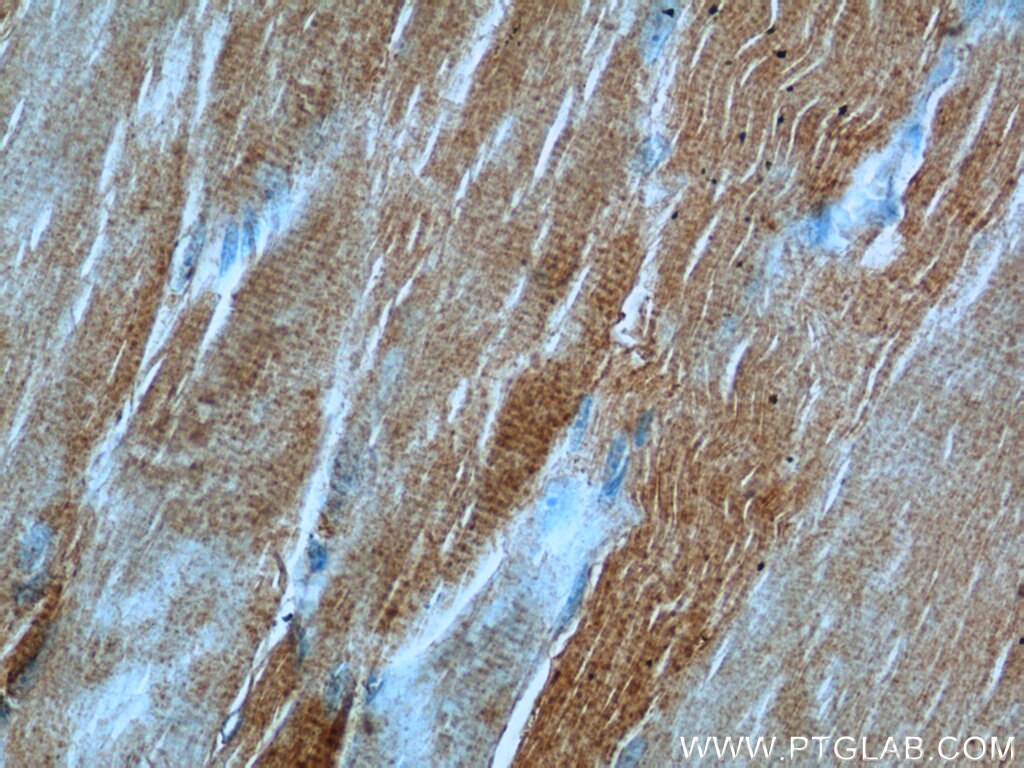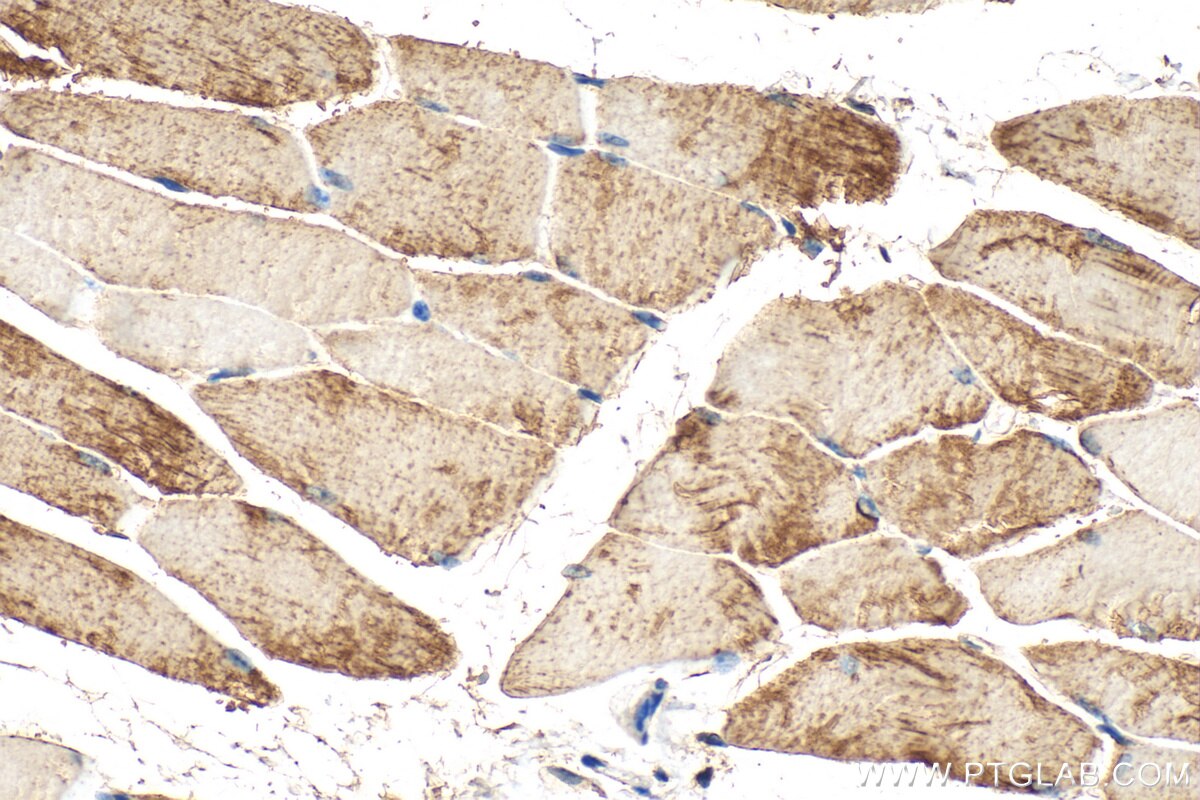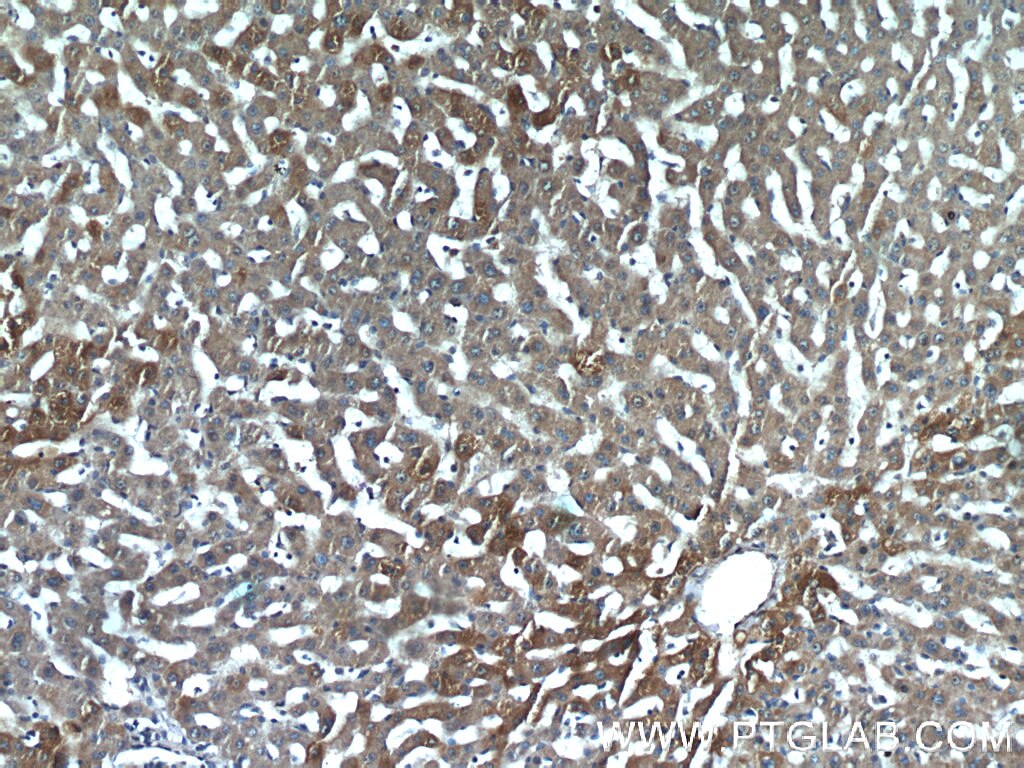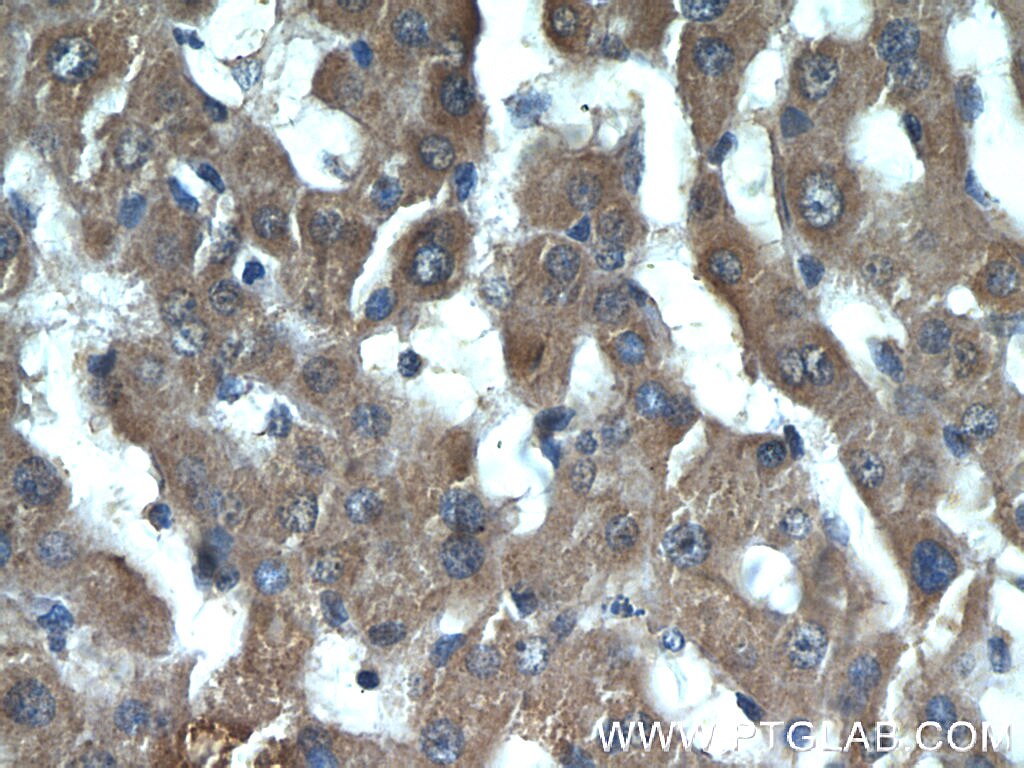Tested Applications
| Positive WB detected in | HepG2 cells, Jurkat cells, K-562 cells, LNCaP cells, mouse heart tissue, rat heart tissue, rat skeletal muscle tissue, mouse skeletal muscle tissue |
| Positive IP detected in | mouse heart tissue |
| Positive IHC detected in | mouse liver tissue, human skeletal muscle tissue, human liver tissue, mouse skeletal muscle tissue Note: suggested antigen retrieval with TE buffer pH 9.0; (*) Alternatively, antigen retrieval may be performed with citrate buffer pH 6.0 |
Recommended dilution
| Application | Dilution |
|---|---|
| Western Blot (WB) | WB : 1:500-1:2000 |
| Immunoprecipitation (IP) | IP : 0.5-4.0 ug for 1.0-3.0 mg of total protein lysate |
| Immunohistochemistry (IHC) | IHC : 1:50-1:500 |
| It is recommended that this reagent should be titrated in each testing system to obtain optimal results. | |
| Sample-dependent, Check data in validation data gallery. | |
Published Applications
| KD/KO | See 1 publications below |
| WB | See 4 publications below |
| IHC | See 1 publications below |
| IP | See 1 publications below |
Product Information
13400-1-AP targets PHKB in WB, IHC, IP, ELISA applications and shows reactivity with human, mouse samples.
| Tested Reactivity | human, mouse |
| Cited Reactivity | human, mouse, pig |
| Host / Isotype | Rabbit / IgG |
| Class | Polyclonal |
| Type | Antibody |
| Immunogen |
CatNo: Ag4240 Product name: Recombinant human PHKB protein Source: e coli.-derived, PGEX-4T Tag: GST Domain: 736-1086 aa of BC033657 Sequence: LLGILLKREGPNFITKEGTVSDHIERVYRRAGSQKLWSVVRRAASLLSKVVDSLAPSITNVLVQGKQVTLGAFGHEEEVISNPLSPRVIQNIIYYKCNTHDEREAVIQQELVIHIGWIISNNPELFSGMLKIRIGWIIHAMEYELQIRGGDKPALDLYQLSPSEVKQLLLDILQPQQNGRCWLNRRQIDGSLNRTPTGFYDRVWQILERTPNGIIVAGKHLPQQPTLSDMTMYEMNFSLLVEDTLGNIDQPQYRQIVVELLMVVSIVLERNPELEFQDKVDLDRLVKEAFNEFQKDQSRLKEIEKQDDMTSFYNTPPLGKRGTCSYLTKAVMNLLLEGEVKPNNDDPCLIS Predict reactive species |
| Full Name | phosphorylase kinase, beta |
| Calculated Molecular Weight | 1086 aa, 124 kDa |
| Observed Molecular Weight | 124 kDa |
| GenBank Accession Number | BC033657 |
| Gene Symbol | PHKB |
| Gene ID (NCBI) | 5257 |
| RRID | AB_2237183 |
| Conjugate | Unconjugated |
| Form | Liquid |
| Purification Method | Antigen affinity purification |
| UNIPROT ID | Q93100 |
| Storage Buffer | PBS with 0.02% sodium azide and 50% glycerol, pH 7.3. |
| Storage Conditions | Store at -20°C. Stable for one year after shipment. Aliquoting is unnecessary for -20oC storage. 20ul sizes contain 0.1% BSA. |
Background Information
PHKB gene encodes phosphorylase kinase subunit beta involved in glycan biosynthesis and glycogen metabolism. PHKB activity is regulated by phosphorylation of various serine residues, and catalyzes the phosphorylation of serine in certain substrates, including troponin I. Phosphorylase kinase (PhK) complex, composed of alpha, beta, gamma, and delta subunits, stimulates energy production from glycogen in the cascade activation of glycogenolysis. Its large homologous alpha and beta subunits regulate the activity of the catalytic gamma subunit. Defects in PHKB are the cause of glycogen storage disease type 9B (GSD9B) also known as phosphorylase kinase deficiency of liver and muscle (PKD), characterized by hepathomegaly, only slightly elevated transaminases and plasma lipids, clinical improvement with increasing age, and remarkably no clinical muscle involvement.
Protocols
| Product Specific Protocols | |
|---|---|
| IHC protocol for PHKB antibody 13400-1-AP | Download protocol |
| IP protocol for PHKB antibody 13400-1-AP | Download protocol |
| WB protocol for PHKB antibody 13400-1-AP | Download protocol |
| Standard Protocols | |
|---|---|
| Click here to view our Standard Protocols |
Publications
| Species | Application | Title |
|---|---|---|
iScience Loss of RNA-Binding Protein Sfpq Causes Long-Gene Transcriptopathy in Skeletal Muscle and Severe Muscle Mass Reduction with Metabolic Myopathy. | ||
J Cancer Res Clin Oncol Phosphorylase kinase β affects colorectal cancer cell growth and represents a novel prognostic biomarker.
| ||
J Biol Chem Circular RNA circMYLK4 shifts energy metabolism from glycolysis to OXPHOS by binding to the calcium channel auxiliary subunit CACNA2D2 |

